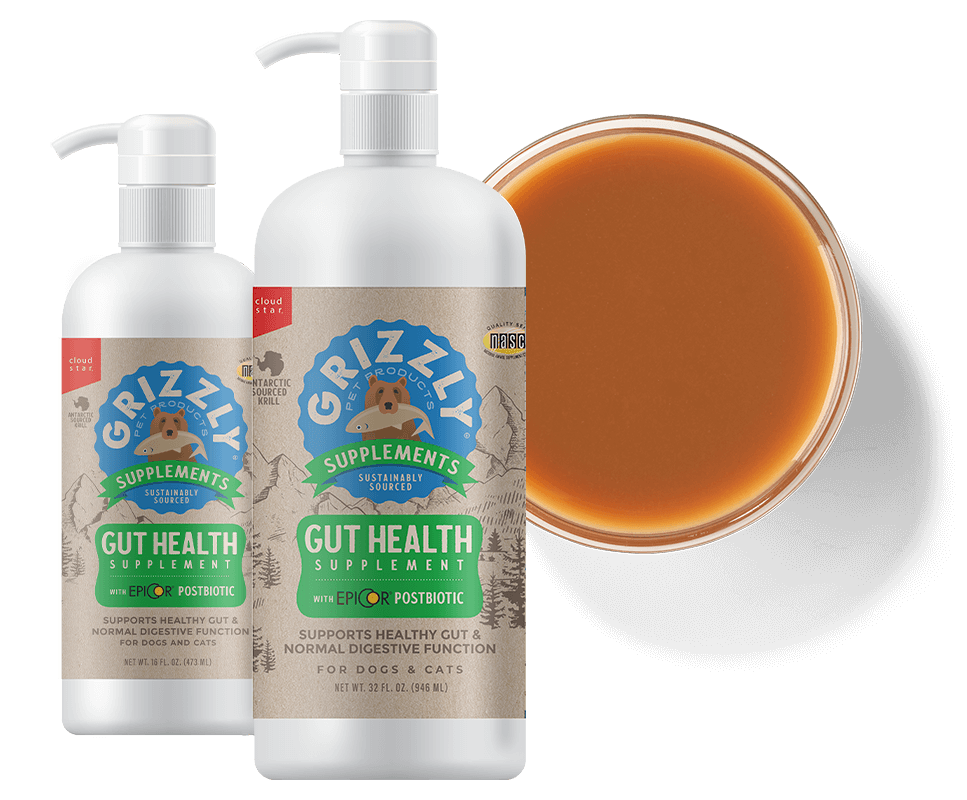A Doctor’s Insight into the Benefits of a gut health supplement
Exploring the Causes and Manifestations of Intestine Issues and the Function of Digestive Tract Health And Wellness Supplement
Digestive tract wellness is a crucial element of overall wellness. Poor nutritional choices, stress and anxiety, and discrepancies in gut microorganisms can cause various digestion concerns. Symptoms such as bloating, diarrhea, and stomach pain frequently show much deeper wellness issues. Recognizing these causes and the possible function of intestine health and wellness supplements might offer vital understandings. What techniques can be utilized to bring back balance and boost gut feature? The responses might hinge on the next steps.
Understanding the Digestive Tract Microbiome
The gut microbiome, an intricate ecosystem of trillions of microorganisms living in the gastrointestinal tract, plays an essential duty in general wellness. This varied community includes bacteria, viruses, fungis, and various other germs that connect symbiotically with the human host. They assist in the food digestion of food, the synthesis of vitamins, and the regulation of metabolism. The gut microbiome considerably affects the immune system, assisting to shield versus microorganisms and maintain a well balanced inflammatory response. Study indicates that a healthy microbiome is important for mental well-being, with gut-brain communications influencing state of mind and habits. Variables such as diet, way of life, and environmental exposures can shape the make-up of the microbiome, emphasizing the value of preserving a well balanced diet rich in fiber and probiotics. Understanding this elaborate community supplies insights right into exactly how gut health can influence overall physical and mental well-being, highlighting its value in health and wellness administration.
Typical Root Causes Of Digestion Concerns
Numerous variables can add to digestive concerns, particular common causes often disrupt digestive tract health. Poor nutritional options, such as high sugar and processed food consumption, can cause inequalities in gut bacteria. Additionally, poor fiber intake can impede food digestion and promote irregular bowel movements. Tension is another considerable variable, as it can change intestine function and worsen present conditions. Lack of physical activity may reduce down the digestive system, causing discomfort and bloating.
Infections, including bacterial, viral, or parasitical agents, can additionally trigger gastrointestinal disturbances. Food allergies and intolerances, especially to gluten and lactose, frequently lead to digestive system discomfort. The misuse of prescription antibiotics can disrupt the natural microbiome, leading to additional problems. Recognizing these usual causes is crucial for people seeking to enhance their gut health and total well-being.
Acknowledging Signs And Symptoms of Gut Troubles
Determining symptoms of gut issues can be essential for prompt intervention and boosted health and wellness. People experiencing stomach pain needs to understand a number of usual indications that recommend underlying concerns. Symptoms may consist of bloating, gas, diarrhea, irregular bowel movements, and abdominal discomfort. These symptoms can differ in strength and frequency, commonly showing the extent of the intestine issue. In addition, some people may notice unexpected weight-loss, tiredness, or changes in cravings, which can indicate a much more major problem. Skin problems, such as breakouts or acne, might also arise, linking digestive tract wellness to general health. Notably, consistent signs and symptoms need to not be ignored, as very early acknowledgment can assist in effective therapy and protect against more complications. A comprehensive understanding of one's physical signals is essential, making it possible for people to look for medical suggestions when required and possibly leading to much better health outcomes via appropriate interventions.
The Effect of Diet Plan on Digestive Tract Wellness
Diet plan plays a crucial function in establishing gut health, influencing both microbial balance and digestive system effectiveness. Nutrient-rich foods can advertise a healthy and balanced gut environment, while processed foods might result in inequalities and digestive issues. Comprehending these nutritional influences is essential for keeping total digestive tract health and wellness.
Nutrient-Rich Foods
While numerous elements influence digestive tract health, the duty of nutrient-rich foods can not be overstated. A diet regimen abundant in whole foods, such as fruits, vegetables, entire grains, lean proteins, and healthy and balanced fats, adds greatly to keeping a well balanced digestive tract microbiome. These foods offer vital vitamins, minerals, and antioxidants that support gastrointestinal wellness and lower swelling. Fiber-rich alternatives, particularly, advertise routine defecation and nourish valuable digestive tract bacteria, boosting total intestine function. Probiotic-rich foods like yogurt and fermented vegetables additionally support digestive tract flora, aiding food digestion. Incorporating a selection of nutrient-dense foods not just cultivates a healthy gut setting yet also strengthens the immune system, adding to total well-being. Focusing on these foods can bring about enhanced gut wellness and prevent possible issues.
Processed Food Consequences
The usage of refined foods can significantly undermine gut health and wellness, combating the advantages of nutrient-rich choices. These foods are frequently high in preservatives, additives, and sugars, which can interfere with the equilibrium of gut microbiota. A diet rich in refined products tends to do not have vital nutrients, bring about deficiencies that jeopardize digestive function. Furthermore, excessive sugar and harmful fats can advertise inflammation and contribute to problems like short-tempered bowel disorder (IBS) and leaky intestine syndrome (supplement for bloating). This imbalance may cause signs and symptoms such as gas, discomfort, and bloating. Additionally, the reduced fiber content in processed foods lessens digestive system wellness by restricting the growth of valuable microorganisms. Eventually, a change in the direction of whole, unrefined foods is crucial for preserving optimal digestive tract function and overall well-being
How Stress Influences Food Digestion
Stress and anxiety significantly influences food digestion by triggering a cascade of physiological responses that can disrupt normal stomach feature. When a private experiences stress, the body goes into a fight-or-flight setting, releasing hormones such as cortisol and adrenaline. These hormonal agents can slow down food digestion by lowering blood circulation to the digestion body organs, leading to symptoms such as diarrhea, bloating, or irregularity.
Stress can modify the intestine microbiome, adversely influencing the balance of advantageous microorganisms. This imbalance can intensify existing intestine issues or develop new ones. In addition, stress and anxiety often leads to harmful consuming habits, such as overindulging or consuming processed foods, which can even more endanger digestion wellness.
Emotional factors, such as stress and anxiety and clinical depression, can also add to stomach pain, creating a responses loophole that bolsters gut concerns. As a result, understanding the complex partnership in between tension and food digestion is important for keeping general digestive tract health and wellness.
The Role of Intestine Wellness Supplements
Digestive tract health and wellness supplements play a considerable function in improving digestive system feature and general wellness. Key components, such as probiotics and prebiotics, are vital for maintaining a balanced intestine microbiome. Comprehending the benefits and parts of these supplements can assist people in making educated choices for their digestive system wellness.
Benefits of Gut Supplements
A prospering gastrointestinal system is crucial for overall wellness, and digestive tract health supplements can play a considerable role in achieving this equilibrium. These supplements frequently include probiotics, prebiotics, and different nutrients that support digestive system feature and promote a healthy gut microbiome. By improving the growth of useful bacteria, they can enhance food digestion, minimize bloating, and minimize pain associated with gastrointestinal problems. Furthermore, intestine supplements may strengthen the digestive tract obstacle, possibly decreasing the risk of food sensitivities and inflammatory problems. Normal use can likewise add to improved nutrient absorption, energy levels, and even psychological health, as digestive tract health is closely connected to mood regulation. Inevitably, incorporating intestine health visit our website and wellness supplements can be a tactical strategy to preserving digestion harmony and total wellness.

Trick Components to Take Into Consideration
When choosing intestine health and wellness supplements, recognizing the key ingredients is crucial for optimizing their benefits. Probiotics, particularly Lactobacillus and Bifidobacterium stress, are crucial as they help restore a well balanced digestive tract microbiome. Prebiotics, such as inulin and fructooligosaccharides, function as food for these useful microorganisms, promoting their development. Digestion enzymes, including amylase and protease, assist in damaging down food, boosting vitamins and mineral absorption. Furthermore, fiber resources like psyllium husk support routine defecation and general intestine health and wellness. Other useful ingredients might consist of L-glutamine, which aids out of commission digestive tract lining, and zinc, understood for its immune-supporting residential properties. Choosing supplements with these key elements can greatly enhance digestive tract wellness and total well-being.
Tips for Keeping a Healthy Intestine
Maintaining a healthy gut is vital for overall wellness, as it plays a vital role in nutrient, food digestion, and resistance absorption. To sustain gut wellness, people ought to focus on a well balanced diet plan abundant in fiber from fruits, veggies, and entire grains. These foods promote beneficial bacteria in the intestine. In addition, including fermented foods such as sauerkraut, kefir, and yogurt can boost intestine vegetation variety. Staying hydrated is likewise important, as adequate water consumption aids food digestion and nutrient transportation.
Routine exercise contributes to digestive tract health and wellness by advertising efficient food digestion and minimizing stress and anxiety, which can detrimentally affect intestine function. Handling stress with mindfulness methods like meditation or yoga exercise can additionally sustain intestine wellness. Finally, avoiding too much use antibiotics and limiting refined foods, sugars, and undesirable fats can promote a balanced digestive tract setting. By embracing these techniques, people can significantly improve their gut wellness and overall well-being.
Often Asked Concerns

Can Intestine Health Influence Mental Health And Wellness and Mood Security?
Study shows a considerable link between intestine wellness and psychological health. The digestive tract microbiome can influence mood stability and psychological health and wellness, suggesting that keeping a healthy gut may add positively to emotional durability and cognitive feature.
Exist Certain Foods to Prevent for Better Gut Wellness?
Certain foods can adversely affect gut health and wellness, consisting of processed sugars, sweetening agents, and high-fat dairy products. Lowering these products might boost digestion feature and promote a healthier gut microbiome, causing on the whole better health.
For how long Does It Take for Gut Health Supplements to Program Effects?
The duration for digestive tract health supplements to demonstrate results varies among people. Commonly, recognizable modifications might occur within a few weeks, but some people may important site require a number of months for perfect results, depending on their one-of-a-kind wellness conditions.
Can Children Experience Intestine Issues Comparable to Adults?

Youngsters can experience gut issues comparable to adults, consisting of discomfort, bloating, and irregular bowel movements (supplement for bloating). Variables such as diet regimen, anxiety, and infections may add to these issues, making recognition and management important for their health and wellness
What Are the Long-Term Effects of Neglected Intestine Troubles?

Fiber-rich choices, particularly, advertise routine bowel motions and nourish valuable intestine microorganisms, enhancing general gut feature. A growing digestion system is crucial for overall wellness, and intestine health supplements can play a substantial role in achieving this balance. Additionally, intestine supplements may reinforce the gut barrier, possibly decreasing the risk of food sensitivities and inflammatory conditions (supplement for bloating). Routine physical activity contributes to intestine health recommended you read and wellness by promoting reliable food digestion and lowering stress and anxiety, which can detrimentally affect intestine function. Specific foods can adversely influence intestine health, consisting of processed sugars, fabricated sweeteners, and high-fat milk products